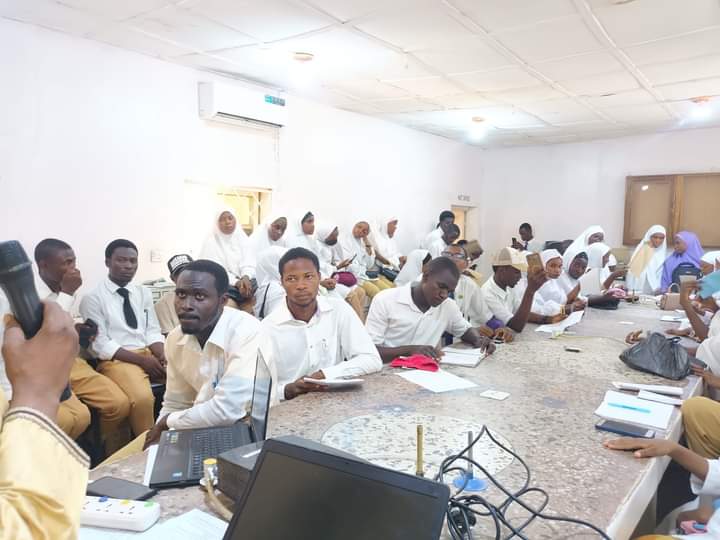The Centre for Information Technology and Development (CITAD), in collaboration with the Kano State School of Health Technology, organized a public lecture for students of Environmental Sciences to commemorate World Environment Day.
“Today, as we commemorate World Environment Day, let us remember that our actions today shape the world of tomorrow. Let’s commit to sustainable practices for a healthier planet and a brighter future”
READ ALSO: CITAD Organizes Lecture To Celebrate 2024 World MSMEs Day
The Executive Director of CITAD Dr. Yunusa Zakaria Ya’u represented by Ibrahim Nuhu, pointed out that the center has been at the forefront of environmental protection, advocating for policies and initiatives through a circular economy and waste management.
He explained that CITAD played a vital role in promoting sustainable practices and advocating for policies that prioritize the health of Nigerians and community well-being through a circular economy and waste management approach.
Head of Department Environmental Health School of Hygiene Kano, Dr. Dayyabu Minjibir explained that a circular economy aims to extend the life cycle of products, regenerate resources, and minimize waste, ultimately addressing global challenges like climate change and biodiversity loss.
He emphasized the need for the reduction of exposure to harmful chemicals and pollutants, saying that the transition not only protects the planet but also ensures healthier communities for future generations
“In a circular economy, products are designed to last longer, and resources are kept in use for as long as possible. This reduces pollution and conserves natural resources, leading to cleaner air, water, and soil. Cleaner environments mean fewer health risks, such asrespiratory illnesses and waterborne diseases,”
Highlights of the event include a presentation on the Concept of Circular Economy, Electronic Waste Management, the Impact of Environment on Human Life,and the Concept of Land Restoration, Desertification, and Drought Resilience.
